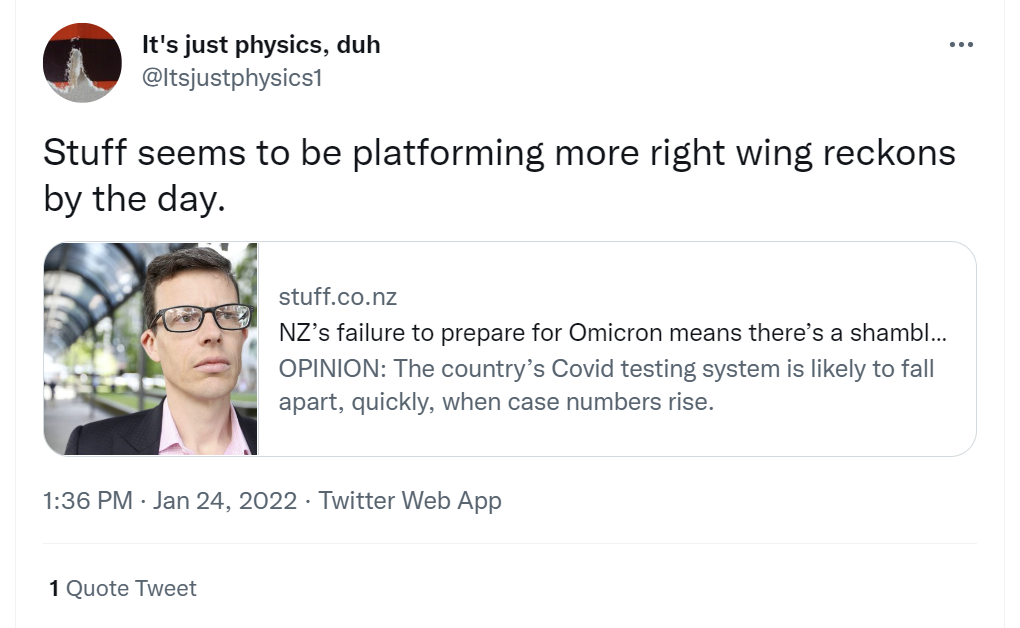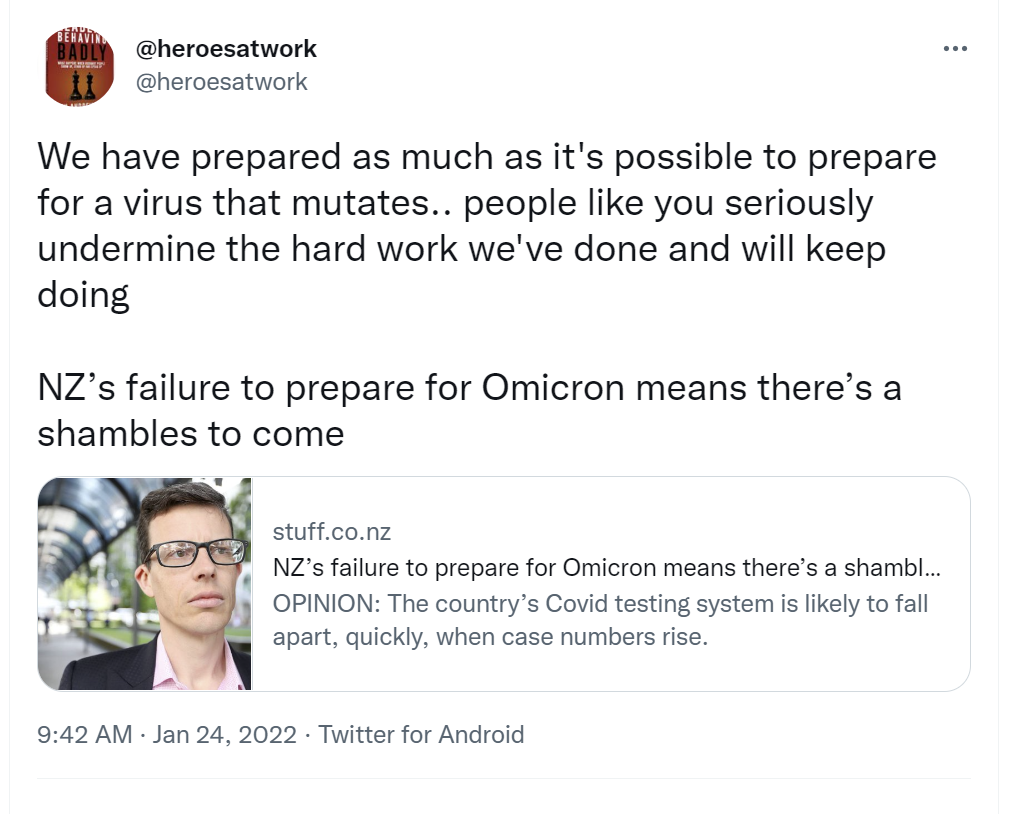I'd thought this was dead-obvious mid-January. I was surprised nobody had written on it, so I included it in a column published 24 January. I'd promised myself I wasn't going to write any more on Covid - that there was no point because nobody was listening. But I wrote it anyway.
The country’s Covid testing system is likely to fall apart, quickly, when case numbers rise.
Testing labs can bundle five to ten samples together for testing. If none are positive, all is fine.
If the pooled sample is positive, individual samples need separate re-testing. When positivity rates are low, the system works well. But when positivity rates are high, pooled sampling stops working. Testing capacity drops to a small fraction of what it had been, just when it is most needed.
Headline figures on testing capacity may be more than a little optimistic. Contracting now for greater capacity, focusing on the saliva-based PCR testing (which identifies genetic material from the virus) that catches Omicron cases earlier, matters.
Nobody listened. I earned a couple minor insults on twitter for having right-wing reckons and undermining the government.
Here's one genius who claims to be a physics teacher.
And another.A number of the reports included useful information however, the reports were not always delivered with significant contextual information, critical analysis or a call for action. The reporting style of the COVID-19 Testing and Supply Group appears to assume its audience had the requisite background knowledge and understanding to interpret the reports and recognise the significance of what was being reported.It also doesn’t recognise the significant non-COVID workload of some of the audience, such as the Director-General or Ministers who have significant other portfolios to attend to. This is perhaps reflective of the capacity limitations of the group in such a demanding environment. As a result, or in addition to this, the COVID-19 Testing and Supply Group relied heavily on verbal communication to provide context or convey information.This approach also assumed that the audience had the requisite background to the issues communicated and that they passed on that information effectively. For example, for the updates provided at the Daily IMT it was assumed that information passed on was being interpreted correctly, being noted, and actioned appropriately.



It’s very difficult to get people to understand something contrary to their public stance when it will impact negatively on their perceived expertise. Especially politicians and senior bureaucrats.
ReplyDelete